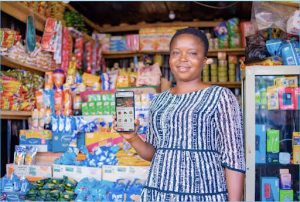
In its report highlighting the impact of women on Nigeria’s economic development, PwC Nigeria, Advisory partner and Chief Economist, Andrew Nevin, indicated that women account for 41 percent ownership of micro-businesses in Nigeria, with 23 million female entrepreneurs operating within this segment.
The strong entrepreneurial spirit of women no doubt makes them a major force in the contribution of the micro business sector to Nigeria’s GDP. 90 percent of Nigeria’s retail market transactions according to reports are estimated to worth $100 billion out of which the food and consumer goods retail market alone accounts for an estimated over $40 billion.
Founder and Chief Executive Officer of leading B2B e-commerce platform Alerzo, Adewale Opaleye, once commended the contributions of women to the socio-economic growth of Nigeria. His perspective on the import of women to the micro business segment is inspired by his mother who was a shop owner. He experienced firsthand the challenges his mother, like other shop owners, faced in the running of her business – issues of inventory management, access to capital, logistics and so on – which seemed endless. His subsequent study in China and witnessing how the country used technology in solving similar problems, inspired him to tackle business challenges in Nigeria using the same technology. This was how Alerzo was born.
Today majority of the micro business owners on the Alerzo platform comprise women. The core focus of B2B e-commerce companies like Alerzo is to help micro business owners stock their stores with original and quality products directly from manufacturers and distributors, delivering the products to them free of charge, thus helping them to overcome most of the challenges associated with their business.
Micro business owners in general no longer have to deal with most of the issues that affect their profitability and ease of doing business, thereby changing the landscape for them one delivery at a time. With its delivery services, retailers save time, energy, and resources that they would have otherwise expended in restocking. These benefits have resulted in 85 percent of the retailers on the Alerzo platform reducing their two to four times a week restock trips to zero. This is further transforming the businesses of all informal retailers on the platform.
With B2B e-commerce bringing continuous improvement to how retailers, including women, run their businesses, the import of women to the micro business sector and economic growth in general cannot be undermined.
 DailyrecordNg …Nigeria's hottest news blog
DailyrecordNg …Nigeria's hottest news blog








